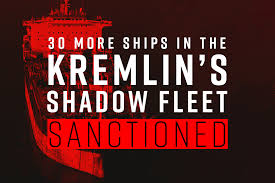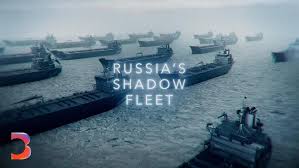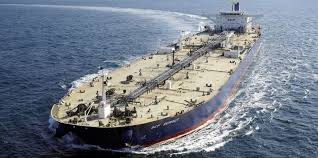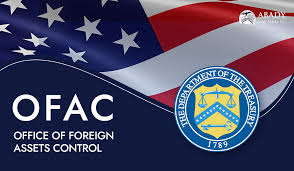The US Department of the Treasury’s Office of Foreign Assets Control (OFAC) has announced a sweeping set of sanctions targeting the shadow fleet of tankers that have long been used to support Russia’s oil exports. This unprecedented move has led to at least 183 tankers being effectively excluded from the international market, making it impossible for them to conduct commercial operations as seagoing vessels. The sanctions are set to deal a major blow to Russia’s oil transport network and are likely to have new consequences for the tanker market as well.
(Text by Hirofumi Yamamoto)
Photo courtesy=OFAC, UK Gov., EU
This action is part of an effort to strengthen the price cap on Russian crude oil introduced by the G7 countries in 2022. US Treasury Secretary Janet Yellen stated in a statement that the measures would “accelerate efforts to cut energy revenues that fund the Kremlin’s war in Ukraine.” The sanctions also target two of Russia’s major oil companies, increasing the risk of oil trading sanctions more than ever before.

The Shadow Fleet – Evasion Tactics Are Now Blocked
Russia has relied on a fleet of informal tankers, known as the “shadow fleet,” to evade sanctions. These vessels conceal their registration and ownership details while illegally transporting oil around the globe. Many of the 183 tankers now sanctioned have been involved in the illegal transport not only of Russian oil but also of oil from Iran, another country subject to sanctions.
The sanctions are expected to severely restrict Russia’s oil exports, which have been dependent on this shadow fleet. The tankers now targeted will lose access to insurance and Protection and Indemnity (P&I) coverage, and their ability to dock at international ports will become increasingly difficult. As a result, the shadow fleet will be effectively rendered unable to operate in international markets, delivering a significant blow to Russia’s energy revenue.
Impact on the Tanker Market – Increased Demand for Legitimate Vessels?
Industry experts have differing views on how the suspension of the shadow fleet will affect the global tanker market. Some analysts suggest that the exclusion of 183 tankers will increase demand for legitimate vessels, potentially pushing up freight rates.
“One of the consequences of making the illegal transportation of Russian oil more difficult will be a rise in demand for legitimate tonnage, which is likely to have a positive effect on the tanker market,” said one maritime analyst. However, there is also the possibility that new methods of sanction evasion could emerge, making it uncertain whether the effects of the sanctions will be sustained in the long term.

Sanctioned Russian Oil Giants – Gazprom Neft and Surgutneftegas
According to OFAC, two of Russia’s largest oil companies, Gazprom Neft and Surgutneftegas, are among those now sanctioned. These vertically integrated firms are responsible for oil exploration, production, and sales within Russia and internationally, and they support a significant portion of the country’s oil revenue.
As a result of the sanctions, assets held by both companies and their subsidiaries will be frozen, and US companies and financial institutions will be prohibited from conducting business with them. Furthermore, the companies’ tankers have also been added to the sanctions list, making international trade increasingly difficult.
The UK has also imposed similar sanctions, further intensifying international pressure on Gazprom Neft and Surgutneftegas.
Opaque Traders and Oilfield Services Providers Also Sanctioned
The shadow fleet has relied on various opaque traders and oilfield service companies, which have now also been added to the sanctions list. These firms, operating with unclear corporate structures, have been responsible for high-risk transactions involving Russian oil, often conducting large deals in a short period of time.
The US Treasury Department has highlighted that these businesses contribute to Russia’s energy revenue and play a role in supporting the Kremlin’s invasion of Ukraine. In addition, OFAC has included over a dozen Russian energy officials on its sanctions list, including the CEOs of oil production companies, further escalating pressure on the energy sector’s leadership.

Global Response – Sanctions Effectiveness and Emerging Challenges
This latest round of sanctions represents an even bolder step by the international community in its efforts to reduce Russia’s energy revenue. However, the effectiveness of these sanctions hinges on whether the shadow fleet can be fully dismantled and whether new sanction-evasion tactics emerge.
On the other hand, Russia may seek to establish new logistics routes or trading networks to circumvent these sanctions. Previous sanctions have seen the use of third-country intermediaries, smuggling, and ship-to-ship transfers at sea as common evasion tactics.
The global tanker market is likely to see significant fluctuations depending on how the shadow fleet responds to these sanctions. Market participants will need to carefully monitor the effectiveness of the sanctions while ensuring that legitimate shipping routes remain secure.
Conclusion – The Fate of the Sanctions Will Shape the Global Energy Market
The US-led sanctions, which aim to reduce Russia’s energy revenues and cut off funding for its war in Ukraine, send a clear message. Yet, the impact of these measures will not be confined to Russia alone; the global tanker market and the broader energy sector will feel the effects.
The disappearance of the shadow fleet could provide a short-term boost to the tanker market, but in the long run, new challenges may arise. The international community’s ability to strengthen sanctions and dismantle Russia’s illicit transport network will be crucial for stabilizing the global energy market.
the URL for Sanction list
https://ofac.treasury.gov/recent-actions/20250110
The Department of the Treasury’s Office of Foreign Assets Control (OFAC) has published a Determination pursuant to Section 1(a)(i) of Executive Order 14024, “Energy Sector of the Russian Federation Economy;” and a Determination pursuant to Section 1(a)(ii) of Executive Order 14071, “Prohibition on Petroleum Services.”
OFAC has also issued Russia-related General License 8L, “Authorizing the Wind Down of Transactions Related to Energy;” Russia-related General License 115A, “Authorizing Certain Transactions Related to Civil Nuclear Energy;” Russia-related General License 117, “Authorizing the Wind Down of Transactions Involving Gazprom Neft, Surgutneftegas, and Certain Additional Entities Blocked on January 10, 2025;” Russia-related General License 118, “Authorizing Certain Transactions Related to Debt or Equity of, or Derivative Contracts Involving, Gazprom Neft, Surgutneftegas, and Certain Additional Entities Blocked on January 10, 2025;” Russia-related General License 119, “Authorizing Certain Transactions Involving Public Joint Stock Company Gazprom Neft Related to Diplomatic and Consular Mission Operations Outside of the Russian Federation;” Russia-related General License 120, “Authorizing Limited Safety and Environmental Transactions and the Unloading of Cargo Involving Certain Persons or Vessels Blocked on January 10, 2025;” Russia-related General License 121, “Authorizing Petroleum Services Related to Certain Projects;” and Russia-/Ukraine-related General License 26, “Transactions Authorized Pursuant to the Russian Harmful Foreign Activities Sanctions Regulations.”
Additionally, OFAC has revoked Russia-related General License 93, “Authorizing Transactions Involving Certain Sovcomflot Vessels.”
Furthermore, OFAC has issued five new, Russia-related Frequently Asked Questions (FAQs 1213 – 1217), and amended 14 Russia-related Frequently Asked Questions (FAQs 967, 976, 977, 978, 999, 1011, 1012, 1017, 1117, 1126, 1182, 1183, 1201, and 1203).
Lastly, OFAC has updated its Specially Designated Nationals and Blocked Persons List (SDN List), the Sectoral Sanctions Identifications (SSI) List and/or the Non-SDN Menu-Based Sanctions List (NS-MBS List).
〆米国、ロシア原油タンカー制裁で急展開――影の船団183隻が商業取引停止に
米国財務省外国資産管理局(OFAC)は、ロシアの原油輸出を支える「影の船団」と呼ばれる不透明なタンカー群に対し、これまでにない大規模な制裁措置を発表した。これにより、少なくとも183隻のタンカーが国際市場から事実上締め出され、外航船としての商業取引が不可能となる。ロシア産原油の輸送網に大打撃を与えると同時に、タンカー市況に新たな影響を及ぼす可能性が高まっている。
今回の措置は、G7各国が2022年から導入しているロシア産原油の価格上限制度を強化する一環だ。米国財務長官ジャネット・イエレンは声明で、「ウクライナ侵攻を支えるクレムリンの主要な収入源を断つため、エネルギー収入削減の取り組みを加速させる」と述べた。制裁対象には、ロシア国内の主要石油生産企業2社も含まれており、石油取引に関する制裁リスクはこれまで以上に高まった。

影の船団――制裁回避の手法が封じられる
ロシアは制裁逃れの手段として、「影の船団」と呼ばれる非公式なタンカー群を活用してきた。これらの船は、船籍や所有者情報を隠し、違法に原油を輸送するために世界中を航行している。今回の制裁対象となった183隻のうち、多くはロシア産石油だけでなく、制裁対象国であるイラン産石油の輸送にも関与していたことが判明している。
影の船団に依存するロシアの原油輸出は、制裁強化により大幅に制限される見込みだ。制裁対象となったタンカーは、保険や船主責任保険(P&I保険)へのアクセスを失い、国際港湾への寄港も難しくなる。これにより、影の船団は国際市場での運航が事実上不可能となり、ロシアのエネルギー収入に深刻な打撃を与える。
タンカー市場への影響――船腹需要の増加か
影の船団の活動停止が国際タンカー市況に与える影響について、業界内ではさまざまな見方がある。一部のアナリストは、183隻のタンカーが市場から締め出されることで、合法的なタンカーに対する需要が増加し、運賃相場が上昇する可能性があると指摘している。
「ロシア産原油の違法輸送が難しくなることで、正規の船腹需要が高まり、タンカー市況にはプラスの影響が出るだろう」と、ある海運アナリストは語る。一方で、制裁を回避する新たな手法が登場する可能性もあり、制裁効果が長期的に持続するかどうかは不透明だ。
制裁対象となった主要石油企業――ガスプロム・ネフチとスルグトネフテガス
OFACの発表によると、今回の制裁対象にはロシアの石油大手「ガスプロム・ネフチ」と「スルグトネフテガス」が含まれる。これらの企業は、ロシア国内外での石油探査、生産、販売を担う垂直統合型の企業であり、ロシアの石油収益の大部分を支えている。
制裁により、両社およびその子会社が保有する資産は凍結され、米国企業や金融機関との取引が禁じられる。さらに、両社のタンカーも制裁リストに追加されたため、国際市場での取引は極めて困難になる。
英国も同様の制裁措置を発表しており、ガスプロム・ネフチとスルグトネフテガスに対する国際的な圧力は一段と強まっている。
不透明な取引業者と油田サービス業者も制裁対象に
影の船団を支えていた不透明な取引業者や、ロシア国内の油田サービス業者も今回の制裁対象に加えられた。これらの業者は、ロシア産石油の取引に関与する高リスクの企業であり、企業構造が不明瞭なまま短期間で巨額の取引を行っていた。
米国財務省は、これらの業者がロシア政府のエネルギー収益に寄与し、ウクライナ侵攻を支える役割を果たしていると指摘している。加えて、OFACはロシアのエネルギー当局者10数名も制裁リストに追加した。これには、石油生産企業の最高経営責任者(CEO)も含まれ、エネルギー業界の中枢に対する圧力が高まっている。
国際社会の対応――制裁効果と新たな課題
今回の制裁は、国際社会がロシアのエネルギー収入を削減するために一段と踏み込んだ措置である。しかし、制裁が実効性を持つかどうかは、影の船団が完全に壊滅し、制裁回避の新たな手法が登場しないかにかかっている。
一方で、ロシア側も制裁を回避するための新たな物流ルートや取引ネットワークの構築を進める可能性がある。過去の制裁事例では、第三国の仲介を通じた密輸や、海上での積み替えなどの手法が用いられてきた。
国際タンカー市場は、今後の制裁の動向と影の船団の動き次第で大きく変動するだろう。市場関係者は、制裁の効果を注視しつつ、合法的な輸送ルートの確保に注力する必要がある。
結論――制裁の行方が世界のエネルギー市場を左右する
米国主導の今回の制裁強化は、ロシアのエネルギー収入を削減し、ウクライナ侵攻の資金源を断つという明確なメッセージを送るものである。しかし、その影響は単にロシアだけにとどまらず、国際タンカー市況、エネルギー市場全体に波及する。
影の船団の消滅は、短期的にはタンカー市場にとって追い風となる可能性があるが、長期的には新たな課題が浮上する可能性もある。世界各国が制裁措置を強化し、ロシアの違法輸送網を封じ込めることが、国際エネルギー市場の安定に不可欠となるだろう。
